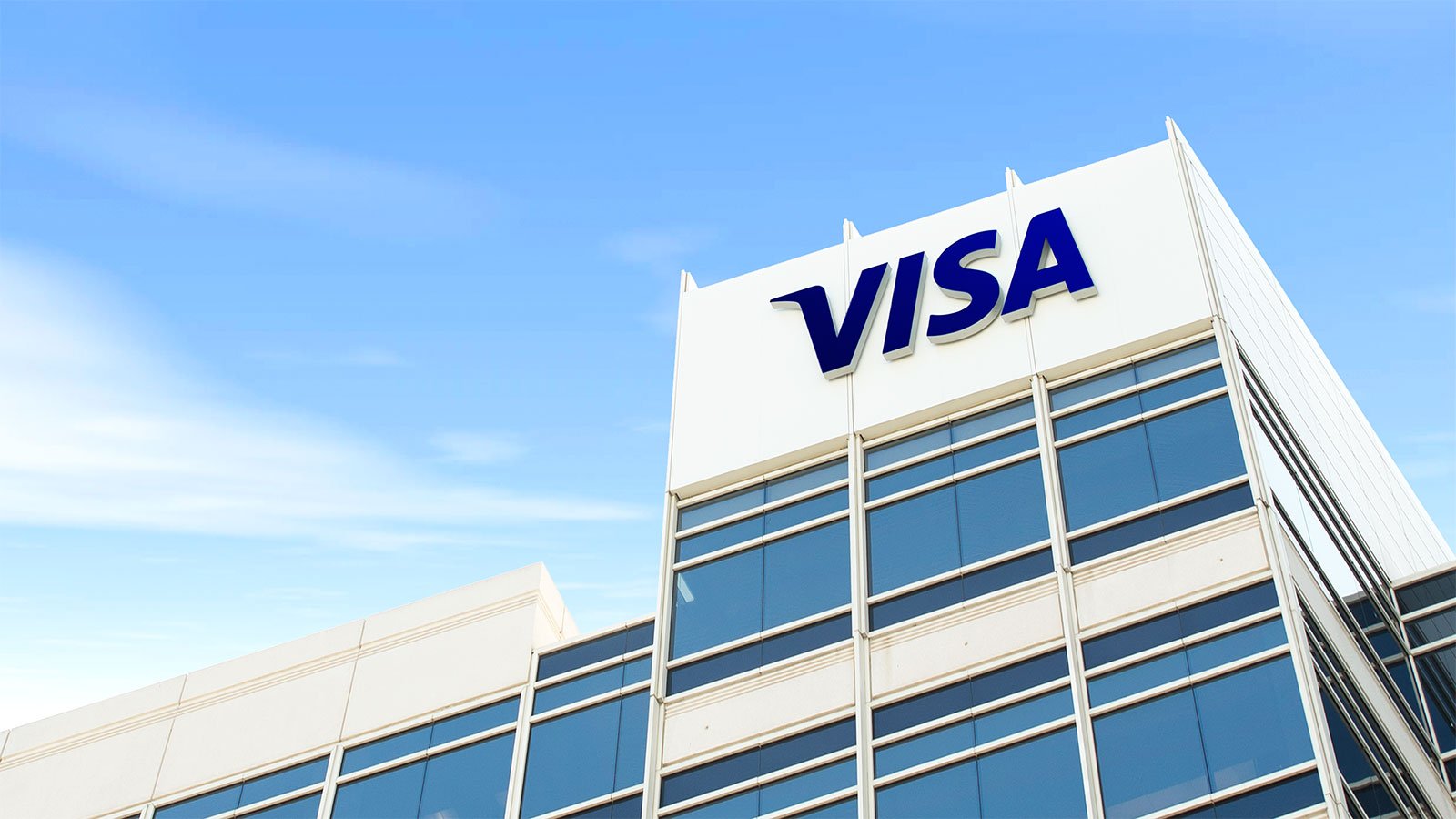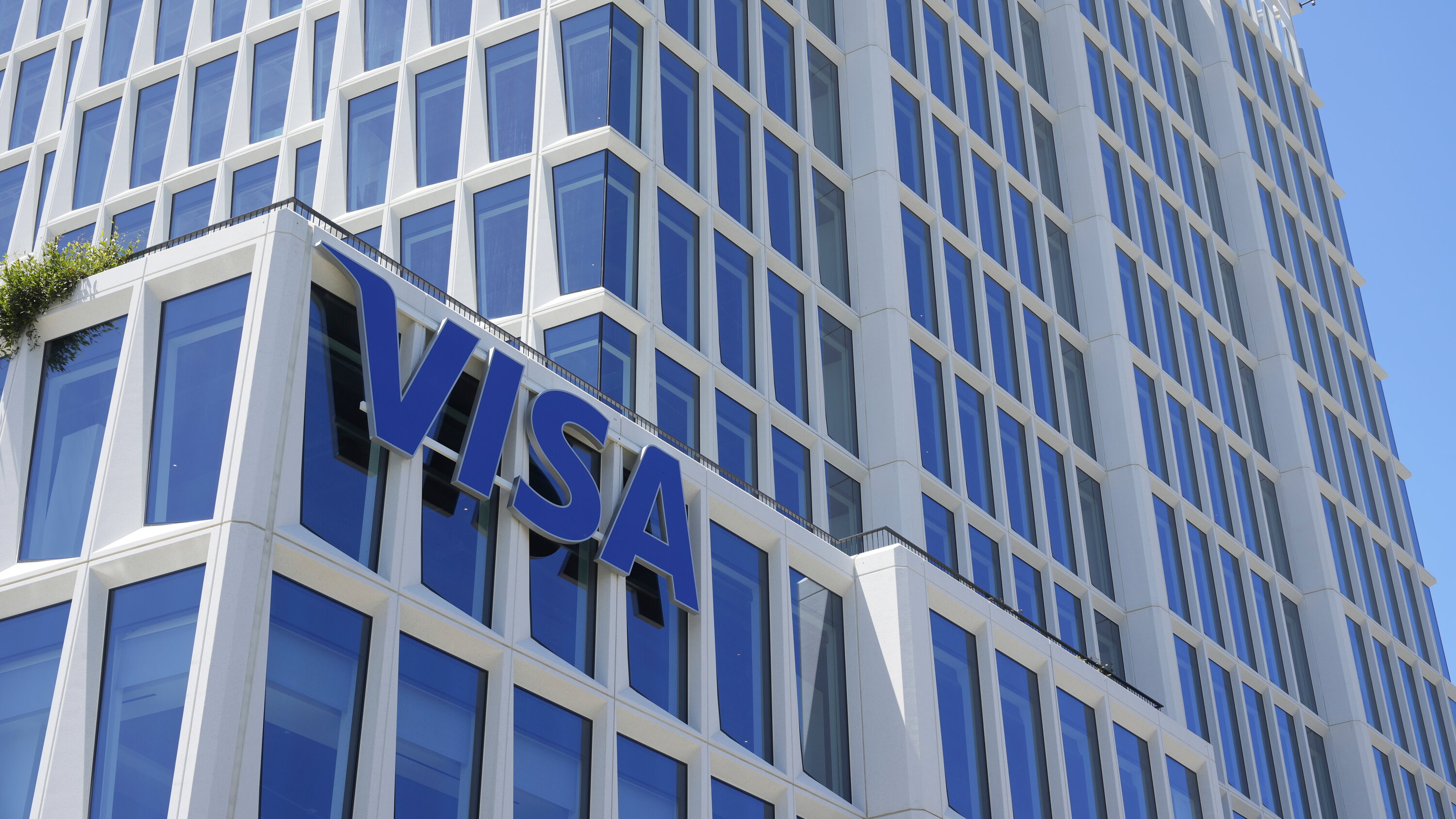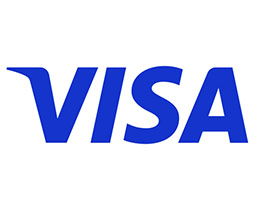Goldman Sachs Upgrades Visa Inc. (NYSE:V) to Buy

- Goldman Sachs upgrades Visa Inc. (NYSE:V) to Buy from Hold, indicating strong confidence in Visa's long-term growth potential.
- Despite a slight decrease on the day of the announcement, Visa's stock performance and market capitalization reflect its robust standing in the financial market.
- Visa's strategic initiatives and financial health were highlighted at the Goldman Sachs Communacopia + Technology Conference, reinforcing optimism for its future growth prospects.
On Wednesday, September 11, 2024, Goldman Sachs upgraded its rating on Visa Inc. (NYSE:V) to Buy, while previously maintaining a hold position. This significant change in stance by one of the leading global investment banking, securities, and investment management firms underscores a strong confidence in Visa's potential for long-term growth. Visa, a global payments technology company, operates one of the world's most advanced processing networks—VisaNet. It facilitates electronic funds transfers throughout the world, most commonly through Visa-branded credit, debit, and prepaid cards.
The upgrade by Goldman Sachs was announced as Visa's stock was trading at $283.96, reflecting the market's immediate response to the company's promising outlook. Visa's stock performance, with a slight decrease of 0.48% to $283.96 on the day, still showcases its robust standing in the financial market. The stock's movement between a low of $278.3 and a high of $285.17 during the trading session, alongside its yearly peak at $290.96, indicates a stable yet dynamic market presence. With a market capitalization of approximately $561.08 billion and a trading volume of about 5.94 million shares, Visa's financial health and investor interest remain strong.
The positive outlook from Goldman Sachs was further supported by Visa's active participation in the Goldman Sachs Communacopia + Technology Conference. Visa's Chief Financial Officer, Chris Suh, represented the company, highlighting its strategic initiatives and financial health. The presence of Will Nance from Goldman Sachs at the conference underscores the collaborative and informative nature of the event, providing a platform for Visa to articulate its growth strategies and financial outlook.
The report published by TheFly, detailing Goldman Sachs' analysis, and the full transcript of Visa's presentation at the conference available on Seeking Alpha, offer investors and the public a comprehensive view of Visa's growth trajectory. These resources provide valuable insights into Visa's operational strategies, financial planning, and market positioning, reinforcing the optimism surrounding its future growth prospects.
In summary, Goldman Sachs' upgrade of Visa to Buy reflects a strong vote of confidence in the company's future. Visa's strategic participation in significant industry conferences, coupled with its stable stock performance and solid market capitalization, paints a promising picture of its growth trajectory. Investors and market watchers will likely keep a close eye on Visa's progress, as it continues to innovate and expand its global payments network.
| Symbol | Price | %chg |
|---|---|---|
| V.BA | 27300 | 0.66 |
| MA.BA | 24260 | 0.21 |
| AXP.BA | 30860 | 0.65 |
| BFIN.JK | 750 | -0.67 |

Visa Beats Q3 Estimates But Holds Guidance Steady Amid Tariff Concerns
Visa (NYSE:V) reported better-than-expected third-quarter results but kept its full-year outlook unchanged, despite global economic uncertainty and ongoing trade tensions.
The company earned $2.98 per share on $10.2 billion in revenue for the quarter ended June 30, beating Wall Street expectations of $2.84 and $9.84 billion, respectively.
Net revenue rose 14% year-over-year, supported by increased payments volume and cross-border activity. Payments volume grew 8%, while cross-border transactions climbed 12% and total processed transactions increased 10%.
Visa said U.S. consumer spending remained strong across both discretionary and non-discretionary categories, despite the broader macroeconomic challenges stemming from tariffs and inflationary pressures.

Visa Inc. (NYSE: V) Continues to Dominate the Payments Industry
- Matthew Coad from Truist Financial sets a bullish price target of $400 for Visa Inc. (NYSE: V), indicating a potential increase of approximately 10.15%.
- Visa's fiscal second-quarter results exceeded Wall Street expectations, with a significant announcement of a $30 billion share buyback plan.
- The stock reached an all-time high above $369, marking a 15.6% increase since the start of the year and showcasing Visa's robust growth in the payments industry.
Visa Inc. (NYSE: V) is a global leader in the payments processing industry. Founded in 1958, Visa went public in 2008, raising $17.9 billion in what was then the largest public offering. The company has maintained a dominant position in the payments industry, even as it faces competition from other major players like Mastercard and American Express.
On June 2, 2025, Matthew Coad from Truist Financial set a bullish price target of $400 for Visa. At the time, Visa's stock was trading at $363.13, suggesting a potential increase of approximately 10.15%. This optimistic outlook aligns with Visa's recent developments, including a surge in the adoption of its "Tap to Phone" technology and a new scam disruption initiative.
Visa's fiscal second-quarter results exceeded Wall Street expectations, reflecting strong consumer spending. The company also announced a $30 billion share buyback plan, which has helped the stock remain resilient amid economic uncertainties. This buyback plan is a strategy where a company purchases its own shares from the marketplace, reducing the number of outstanding shares and often boosting the stock price.
Visa's stock recently reached an all-time high above $369, marking a 15.6% increase since the start of the year. Currently, Visa's stock is trading at $363.03, with a slight decrease of 0.59% today. The stock has seen a low of $359.96 and a high of $364.05 in today's trading. Visa's market capitalization stands at approximately $704 billion, reflecting its significant presence in the global market.

Truist Launches Coverage on Visa With $400 Price Target, Citing Defensive Strength
Truist Securities initiated coverage on Visa (NYSE:V) with a Buy rating and a $400 price target, pointing to the payment giant’s resilient earnings profile and appeal as a defensive investment, even during periods of economic uncertainty.
Analysts highlighted Visa’s ability to deliver mid-to-high single-digit earnings growth even in a downturn, supported by its diverse revenue mix, including stable value-added services and brand fees tied to essential consumer spending. Additionally, the firm noted Visa's flexibility to manage costs—such as by scaling back marketing—and its robust buyback activity as further buffers during economic slowdowns.
While Truist sees a potential drag from softer cross-border spending, which led to slightly below-consensus forecasts, they view the current valuation as compelling. With investors seeking safety in uncertain times, Visa’s profile could support a higher relative multiple. The $400 price target reflects a 30x multiple on 2026 EPS, translating to a PEG ratio of approximately 2.3x based on an expected 13% earnings growth rate in 2027.

Visa Tops Q2 Estimates and Unveils $30B Buyback
Visa (NYSE:V) delivered better-than-expected fiscal second-quarter results, powered by robust gains in payments and cross-border volumes, and announced a massive new $30 billion share repurchase program.
The payments giant reported earnings of $2.76 per share, surpassing analyst expectations of $2.68. Revenue rose 9% year-over-year to $9.6 billion, slightly ahead of the $9.55 billion consensus. The company benefited from strong underlying trends, including a 13% jump in cross-border volume and a 9% increase in processed transactions, underscoring continued consumer and business activity across markets.
In a show of confidence, Visa’s board authorized a new $30 billion buyback of class A common stock, adding to its already aggressive capital return program.

Visa Tops Q2 Estimates and Unveils $30B Buyback
Visa (NYSE:V) delivered better-than-expected fiscal second-quarter results, powered by robust gains in payments and cross-border volumes, and announced a massive new $30 billion share repurchase program.
The payments giant reported earnings of $2.76 per share, surpassing analyst expectations of $2.68. Revenue rose 9% year-over-year to $9.6 billion, slightly ahead of the $9.55 billion consensus. The company benefited from strong underlying trends, including a 13% jump in cross-border volume and a 9% increase in processed transactions, underscoring continued consumer and business activity across markets.
In a show of confidence, Visa’s board authorized a new $30 billion buyback of class A common stock, adding to its already aggressive capital return program.

TD Cowen Trims Visa Price Target Amid Murkier Consumer Outlook
TD Cowen lowered its price target on Visa (NYSE:V) to $370 from $382 while reaffirming a Buy rating, noting resilient payment volumes but growing uncertainty in the consumer environment.
The firm anticipates Visa’s March quarter will show steady performance, potentially in line or slightly above expectations. However, macro signals suggest the back half of the year may bring slower growth, prompting the analyst to cut revenue and earnings estimates for fiscal 2025 and 2026. Visa’s more favorable exposure to debit over credit and stronger U.S. market presence are seen as near-term advantages compared to Mastercard.
The firm believes Visa remains better positioned to defend margins, with a more agile cost-cutting approach if macro conditions worsen. Despite the revised outlook, Visa’s diversified business and ability to navigate economic headwinds continue to support the bullish long-term view.

TD Cowen Trims Visa Price Target Amid Murkier Consumer Outlook
TD Cowen lowered its price target on Visa (NYSE:V) to $370 from $382 while reaffirming a Buy rating, noting resilient payment volumes but growing uncertainty in the consumer environment.
The firm anticipates Visa’s March quarter will show steady performance, potentially in line or slightly above expectations. However, macro signals suggest the back half of the year may bring slower growth, prompting the analyst to cut revenue and earnings estimates for fiscal 2025 and 2026. Visa’s more favorable exposure to debit over credit and stronger U.S. market presence are seen as near-term advantages compared to Mastercard.
The firm believes Visa remains better positioned to defend margins, with a more agile cost-cutting approach if macro conditions worsen. Despite the revised outlook, Visa’s diversified business and ability to navigate economic headwinds continue to support the bullish long-term view.







